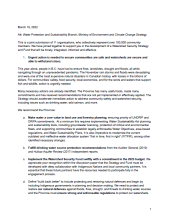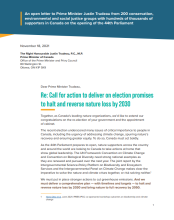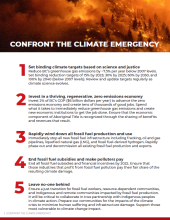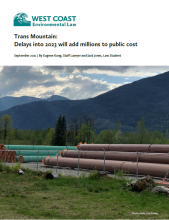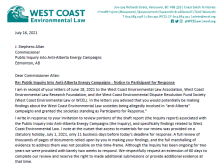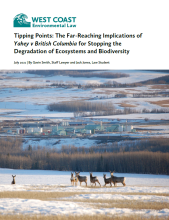Publications
Browse our recent publications, including reports, briefs, submissions to government, and other materials.
Use the search criteria to filter by topic, date, author and/or keywords.
Publication Date: March 2022
Pages: 4
Topics: Watersheds, watershed protection, green communities
Publication Date: January 2022
Pages: 30
Topics: Indigenous Protected and Conserved Areas (“IPCAs”), Indigenous Guardians, Indigenous Laws, Indigenous-led Conservation
Publication Date: January 2022
Pages:
Topics: Indigenous laws, fisheries governance, watershed protection
Publication Date: December 2021
Pages: 4
Topics: Climate, oil and gas
Publication Date: November 2021
Pages: 15
Topics: Biodiversity, Indigenous-led conservation, environmental justice
Publication Date: September 2021
Pages: 7
Topics: Climate Change, BC Government, CleanBC
Publication Date: September 2021
Pages: 28
Topics: Trans Mountain Pipeline, TMX
Publication Date: August 2021
Pages: 4
Topics: Climate accountability, climate change, BC Climate Adaptation
Publication Date: July 2021
Pages: 17
Topics: Alberta Inquiry
Publication Date: July 2021
Pages: 14
Topics: Cumulative Effects, Treaty Rights
